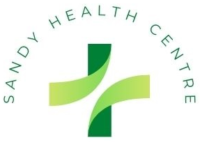Ordering repeat prescriptions
The easiest ways to order repeat prescriptions are:
- using your NHS account (through the NHS website or in the NHS App)
- using the GP online system: SystmOnline
These accounts show you all your repeat medicine and dosage and you can choose the ones you need.
You can also:
- submit a repeat prescription request through our online consultation service (Klinik)
It is our policy to only accept written requests; telephone requests will be refused. Please allow 5 working days for us to process any prescription requests.
Collecting your prescription
You can usually collect your prescription from the pharmacy 5 working days after you have ordered it.
You will need to choose a pharmacy to collect your prescription from. We call this nominating a pharmacy.
You can change your nominated pharmacy at any time:
- on the app or website where you order repeat prescriptions
- use the Klinik online service
- at any pharmacy that accepts repeat prescriptions
Dispensary
Dispensing of prescriptions is available for patients who reside in some of the surrounding villages. We are not authorised to dispense medication for patients living in Sandy.
Questions about your prescription
If you have questions about your medicine, your local pharmacists can answer these. They can also answer questions on medicines you can buy without a prescription.
The NHS website has information on how your medicine works, how and when to take it, possible side effects and answers to your common questions.
If you want to ask us about any medication queries, please contact us through the Klinik online service
Medication reviews
We are keen to ensure that patients with ongoing medical problems are monitored regularly.
If you have been advised by the surgery that your medication review is due, please use our online Medication Review form or inform reception. This will allow the dispensary to arrange for a pharmacist to subsequently carry out a medication review – they may not need to call you to undertake this.
We will not let you go without your medication unless there is a serious clinical risk.
Overdue Review?
If you are using SystmOnline, you can submit a custom request. This is located beneath the tick boxes where you would normally request your medication.
DRUM Reviews
You may be asked periodically to complete a short questionnaire regarding your medications and their usage. This information is used to provide better care for our patients as well as to flag any concerns for our doctors.
Prescription charges
Find out more about prescription charges (nhs.uk).
What to do with old medicines
Take it to the pharmacy you got it from. Do not put it in your household bin or flush it down the toilet.
About pharmacists
As qualified healthcare professionals, pharmacists can offer advice on minor illnesses such as:
- coughs
- colds
- sore throats
- tummy trouble
- aches and pains
They can also advise on medicine that you can buy without a prescription.
Many pharmacies are open until late and at weekends. You do not need an appointment.
Most pharmacies have a private consultation room where you can discuss issues with pharmacy staff without being overheard.
Pharmacy First Service
Most community pharmacies now provide prescription medications, including anti-biotics, without requiring a GP visit. This service is available for common conditions like:
- Sinusitis: 12 years and over
- Sore throat: 5 years and over
- Ear infections (acute otitis media): 1 – 17 years
- Infected insect bites: 1 year and over
- Impetigo: 1 year and over
- Shingles: 18 years and over
- Uncomplicated urinary tract infections in women: 16 – 64 years
If you qualify, simply visit a pharmacy and ask for their “Pharmacy First” service or visit https://mylocalsurgery.co.uk/our-services/pharmacy-first
